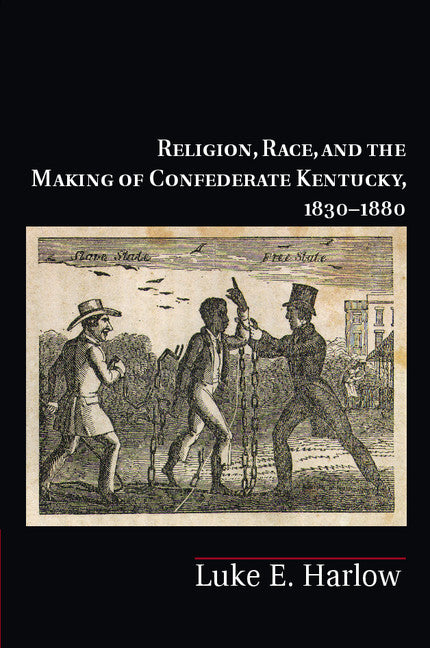Freshly Printed - allow 6 days lead
Couldn't load pickup availability
Religion, Race, and the Making of Confederate Kentucky, 1830–1880
This book places religious debates about slavery at the centre of American political culture before, during and after the Civil War.
Luke E. Harlow (Author)
9781107000896, Cambridge University Press
Hardback, published 21 April 2014
258 pages, 1 map 1 table
23.1 x 15.5 x 2.5 cm, 0.55 kg
'Luke Harlow's Religion, Race, and the Making of Confederate Kentucky, 1830–1880 has taken a story that specialists have come to know - that white Kentuckians came late to their embrace of Confederate culture, after the failure of that political state - and has used it to reveal connections between evangelical religious, racial, and political thought in nineteenth-century America on both sides of the Civil War that have never before been explored so deeply … a signal contribution to the field … Harlow provides a needed postscript to the stories of evangelical conflict over slavery, demonstrating how ideas from the antebellum period are carried over into the postbellum one. Harlow is able to see this genealogy both because he is exquisitely attuned to the theological repartee of his subjects and because he takes on a distinct temporal frame, tracing connections and changes between antebellum and postbellum belief systems in a way that many other historians looking at the intersection of
This book sheds new light on the role of religion in the nineteenth-century slavery debates. Luke E. Harlow argues that the ongoing conflict over the meaning of Christian 'orthodoxy' constrained the political and cultural horizons available for defenders and opponents of American slavery. The central locus of these debates was Kentucky, a border slave state with a long-standing antislavery presence. Although white Kentuckians famously cast themselves as moderates in the period and remained with the Union during the Civil War, their religious values showed no moderation on the slavery question. When the war ultimately brought emancipation, white Kentuckians found themselves in lockstep with the rest of the Confederate South. Racist religion thus paved the way for the making of Kentucky's Confederate memory of the war, as well as a deeply entrenched white Democratic Party in the state.
Introduction
1. The challenge of immediate emancipationism: the origins of abolitionist heresy, 1829–35
2. Heresy and schism: the uneasy gradualist-proslavery ecclesiastical alliance, 1836–45
3. The limits of Christian conservative antislavery: white supremacy and the failure of emancipationism, 1845–59
4. The abolitionist threat: religious orthodoxy and proslavery unionism on the eve of civil war, 1859–61
5. Competing visions of political theology: Kentucky Presbyterianism's civil war, 1861–2
6. The end of neutrality: emancipation, political religion, and the triumph of abolitionist heterodoxy, 1862–5
7. Kentucky's redemption: confederate religion and white democratic domination, 1865–74
Epilogue: the antebellum past for the postwar future.
Subject Areas: Religion: general [HRA], Modern history to 20th century: c 1700 to c 1900 [HBLL], History of the Americas [HBJK]


